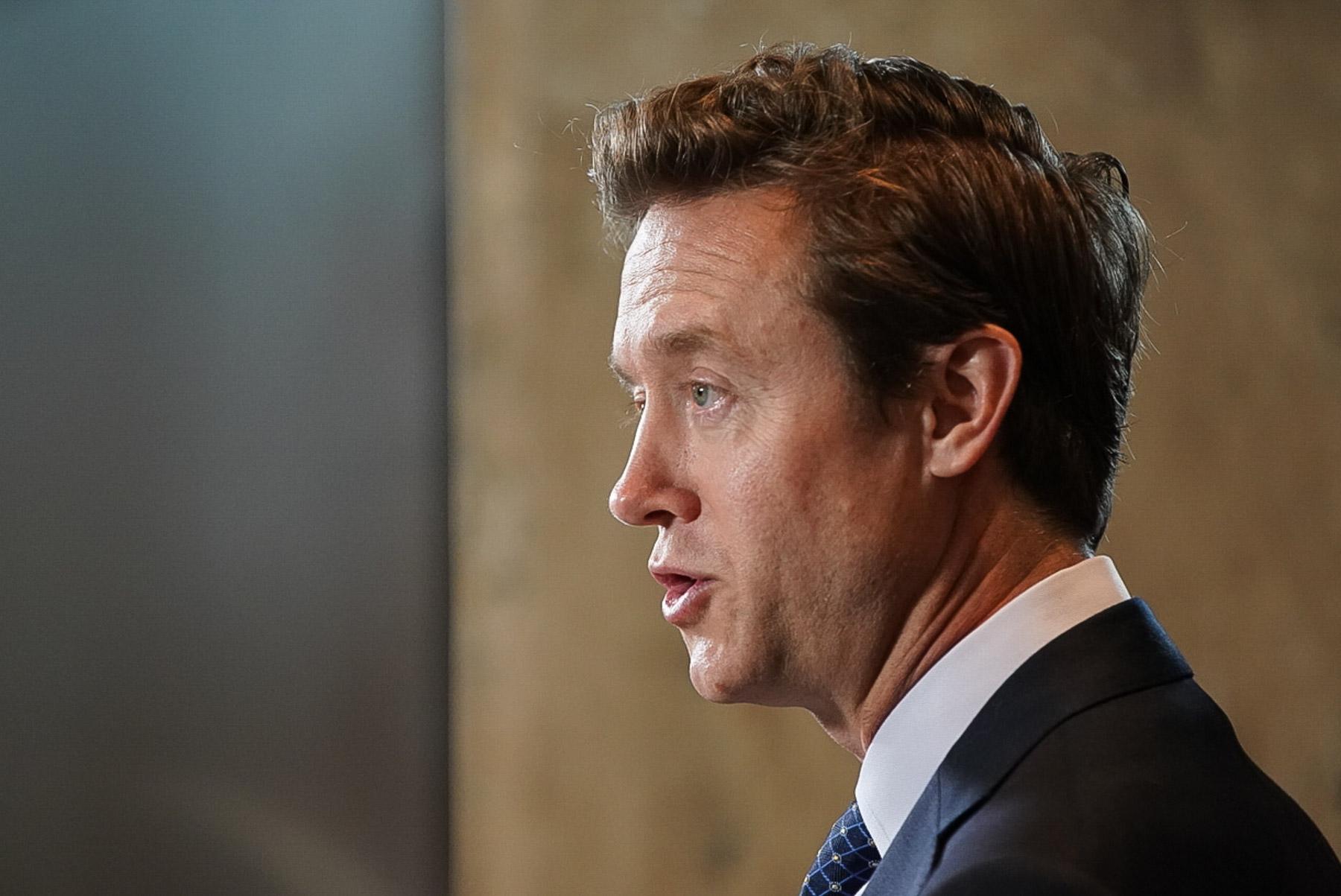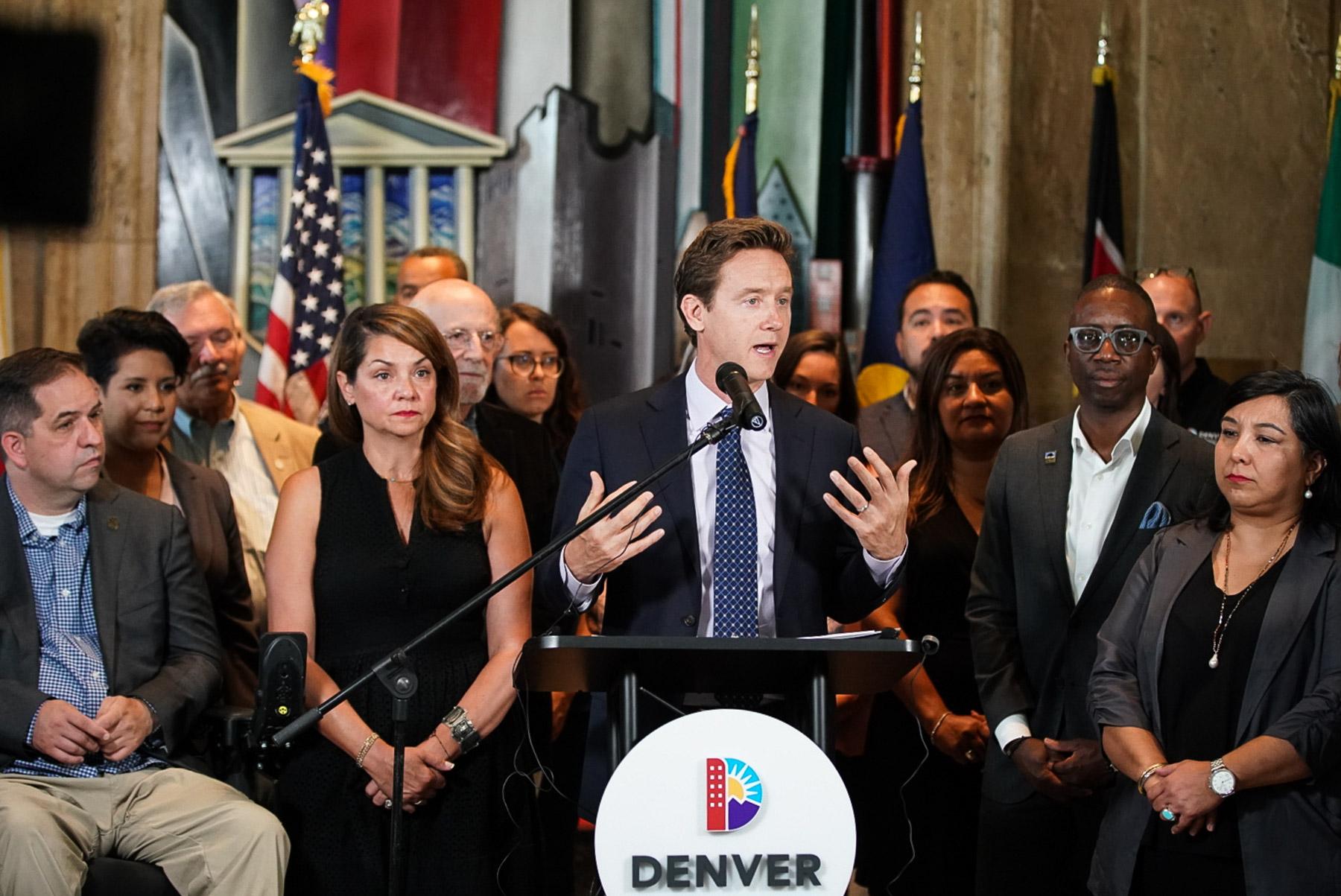On Tuesday morning, at the top of his first full day in office, Denver Mayor Mike Johnston laid the start of his plans to end homelessness.
"Today, we will sign a declaration of emergency here in the City of Denver to declare an emergency around homelessness," said Johnston, flanked by members of City Council, under the rotunda of the City and County Building.
He pledged to get 1,000 people who are currently living on the streets into housing by the end of the year.
The state of emergency -- an idea first brought up in the mayoral race by Trinidad Rodriguez -- will give Johnston additional leverage in getting state and federal money to get people off the streets and housed, he said.
So what does that mean?
Today, he will activate the Emergency Operations Center in the City and County Building.
City Council members will host tours through all 78 Denver neighborhoods to explore what resources and supports they can offer and how each community might play a role in solving the crisis.
"We will be looking at an all-of-the-above strategy on housing," Johnston said. "That means we're looking to build on many successes the city has used already. We will try to move people that are currently unhoused into housing units through rapid rehousing or access to available rental units or leases. We'll be calling on landlords and property owners all over the city who have units that are available to partner with us to get people access to those units. We'll be focusing on hotel conversions."

Additionally, his team will identify both public and private land citywide where Denver will open micro-communities. In these tiny home villages, people can receive temporary shelter, bathrooms, kitchens, showers and wrap-around services, including medical, mental health and addiction treatment. The city has already found 197 spots.
"We are bringing in 10 mayoral appointees to our office directly to lead on this effort," Johnston said. "They'll be directly partnered with the city council members to lead this outreach in communities, to lead the partnership with providers around the city, to build up the services and supports needed to make this possible and to make sure that we have alignment across all of our agencies and all of our departments and our community."
Which people facing housing insecurity will be served by this process?
Johnston's declaration is specifically to help people currently living on the streets.
His plan did not include specifics around helping the many people living in both group and individual shelters into housing. He did not address how he would fund those ongoing efforts -- which have been precarious, as non-congregate shelters have closed, homeless service providers have struggled to stay staffed and mental health professionals and caseworkers are in short supply.
He did not address homelessness prevention solutions, including the recent rise in evictions that is leading more people toward homelessness.
And he did not address how law enforcement would be used in the process.
"We will bring together the nonprofit community, the business community, our public leadership, the providers in the city, the faith community, and say we're all in this together," he added.
Johnston consistently says there are 1,400 people living on the streets. That's based on the Department of Housing and Urban Development's point-in-time survey. The total number of people receiving homelessness services in any given year in the Denver metro is closer to 28,000, according to the annual homelessness report from the Metro Denver Homelessness Initiative.
Other mayors have tried to end homelessness and failed. In recent weeks, former Mayor Michael Hancock expressed skepticism about the possibility of Johnston ending homelessness in Denver, as have multiple City Council members.
"I'm not the doubter," Hancock said. "I love those kinds of grandiose ideas. If you don't have big, hairy, audacious ideas, then what do you have to pursue? So go do it. And hopefully you'll do something that no other city in the world has been able to do, and that is to end homelessness."
"The biggest problem we face in democracy is giving in to the notion that some of our problems are unsolvable," Johnston said. "I think there's work this city has done as other cities and other countries have done that show there are solutions out there that work."
Update: We have added a quote from Michael Hancock and clarified that his skepticism was about the possibility of ending homelessness in Denver, not Johnston's specific plans announced on Monday.











